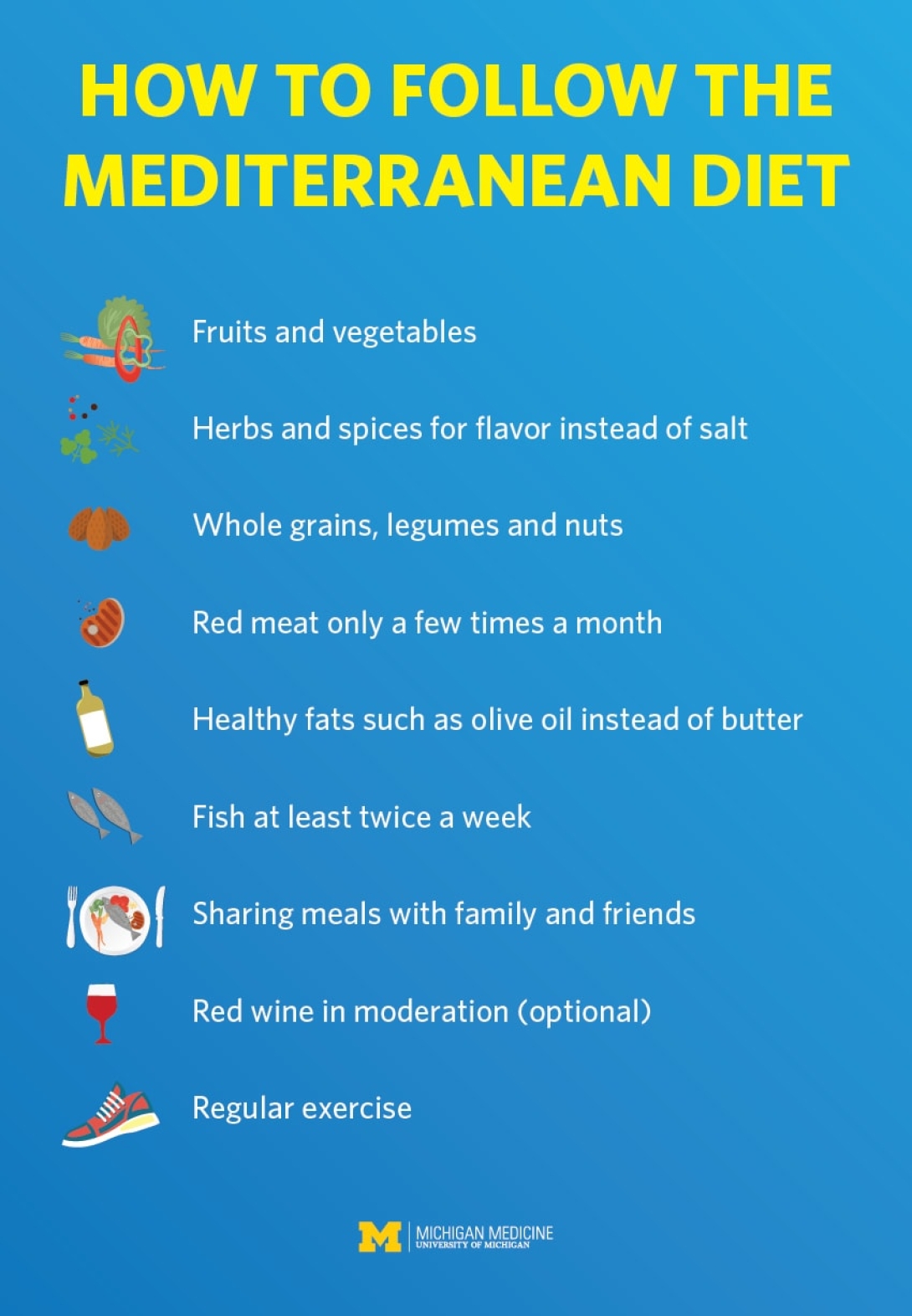Is a poor diet sabotaging your recovery from heart disease? It's National Mediterranean Diet Month, a great time to learn more about the heart healthy diet.
7:00 AM
Author |

Your heart procedure was a success, and cardiac rehabilitation is going strong. That, of course, is great news.
MORE FROM MICHIGAN: Sign up for our weekly newsletter
But there's more to do to keep your mind and body healthy in the long run, says Susan Ryskamp, a dietitian at the University of Michigan Frankel Cardiovascular Center.
One key factor: food.
The things you eat, Ryskamp notes, are crucial in the days, months and even years after a cardiac event.
That's because a diet high in processed foods — including cookies, cakes, doughnuts, fried foods, processed meats, refined grains and high-fat dairy products — is tied to depression, which some heart patients in recovery might already be experiencing.
These junk food culprits can also cause inflammation in the body and contribute to poor cardiovascular health and other health issues.
Such foods can raise and lower blood sugar, and that isn't good for the blood vessels or brain, Ryskamp says. "A healthy diet can help reduce depression and keep your heart pumping strong. The brain and body function best when they get the right fuel."
Focus on fresh foods, self-reflection
Simple swaps can help you get started.
SEE ALSO: Prevent Heart Disease with These Simple Menu Tweaks
Ryskamp recommends replacing processed foods with vegetables, fruit and fish. She encourages patients to follow the Mediterranean diet, which focuses on fruits, vegetables, whole grains and nuts — plus fish and good fats such as olive oil.
Beyond the implications on physical health, that menu can offer a much-needed emotional boost. According to one study funded by the Spanish government, foods associated with a Mediterranean diet are linked to a lower risk of depression.
Keeping a diary can help a person stay on track.
Ryskamp advises patients to take note of the foods they consume and their mood afterward. That way, she says, "if you feel tired or unable to concentrate after eating cookies, cakes, pizza or fast foods, you'll notice a difference once you stop this cycle."
Make mindful eating a habit
Another way to stay focused: Ask yourself whether the food going into your body has a purpose.
"Make mindful choices," Ryskamp says. "The better your choices, the better you'll feel emotionally and physically. Your brain and your body will function better."
Setting short- and long-term goals helps in that process.
Says Ryskamp: "What can you do today and then further down the road to accomplish those goals? Now that you've been treated for heart disease, you can continue on the road to improved health."
The Mediterranean eating pattern is taught in the University of Michigan Metabolic Fitness Program, which helps enrollees improve cardiovascular health with lifestyle changes. A physician referral is required. Call 734-998-5679 for more information.


Explore a variety of health care news & stories by visiting the Health Lab home page for more articles.

Department of Communication at Michigan Medicine
Want top health & research news weekly? Sign up for Health Lab’s newsletters today!





